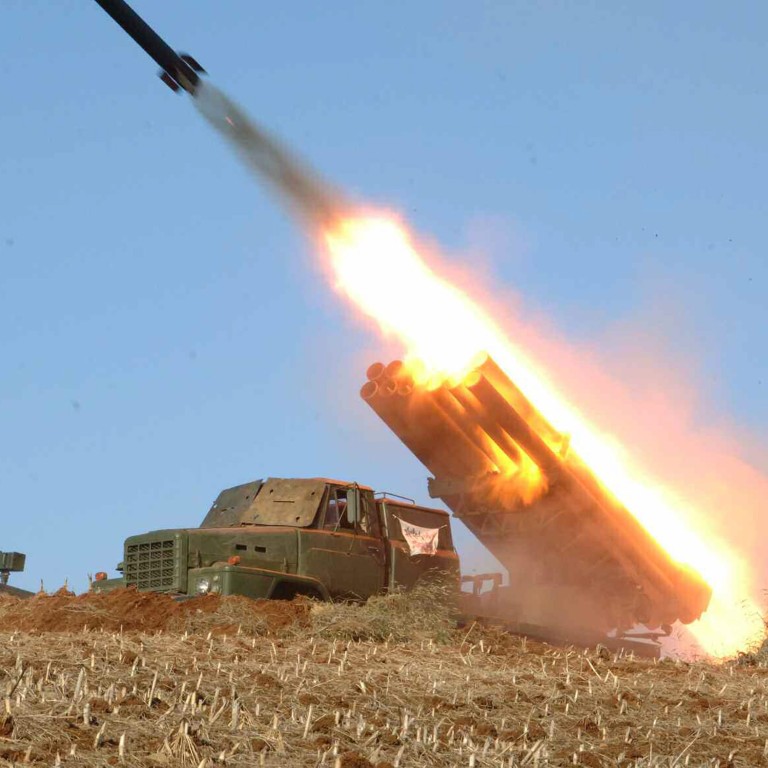
South Korea calls the North’s missile tests a ‘calculated provocative act’
Seoul has described Pyongyang's decision to launch four short-range missiles into the Sea of Japan during its military exercises with the US as 'provocative'
South Korea on Friday labelled North Korea’s test firing of four short-range missiles a calculated, provocative act timed to coincide with South-US joint military exercises.
North Korea test-fired the missiles into the Sea of Japan on Thursday, three days after the joint drills kicked off in the face of vocal opposition from Pyongyang.
“With the exercises underway, we see the firings as a calculated, provocative act,” defence ministry spokesman Kim Min-seok told journalists.
He noted that the launches also came days after an incursion by a North Korean patrol boat across the disputed Yellow Sea border that has been the scene of brief but bloody naval clashes in the past.
Kim said the tests were of Scud-type missiles at the longer edge of the short-range spectrum, with an estimated reach of 300-800 kilometres – capable of striking any target in the South.
“If the North re-engineers Scuds or tests them, we always undertake a serious analysis to consider counter-measures,” he said.
Kim stressed that the annual military drills with the United States would continue as planned.
In Washington, State Department spokeswoman Jen Psaki urged North Korea “to exercise restraint and take steps to improve its relations with its neighbours”.
“We view this as an unannounced weapons test that we see somewhat regularly.”
But Pentagon spokesman Colonel Steven Warren acknowledged that such short-range tests did not put the North in breach of international resolutions.
“We view this as an unannounced weapons test that we see somewhat regularly,” he told reporters in Washington.
It is not unusual for North Korea to carry out such tests and observers said they were unlikely to trigger a significant rise in military tensions.
Despite the start of the South Korea-US drills on Monday, which the North routinely condemns as rehearsals for invasion, relations between Seoul and Pyongyang are currently enjoying something of a thaw.
This year’s drills overlapped with the end of the first reunion for more than three years of families divided by the Korean War – an event that has raised hopes of greater cross-border co-operation.
Pyongyang had initially insisted that the joint exercises be postponed until after the reunions finished on Tuesday. But Seoul refused and – in a rare concession – the North allowed the family gatherings on its territory to go ahead as scheduled.
North Korea has hundreds of short-range missiles and has developed and tested – with limited success – several intermediate-range models.
Pyongyang’s claims to have a working intercontinental ballistic missile have been treated with scepticism by most experts, but there is no doubt that it is pushing ahead with an active, ambitious missile development programme.
